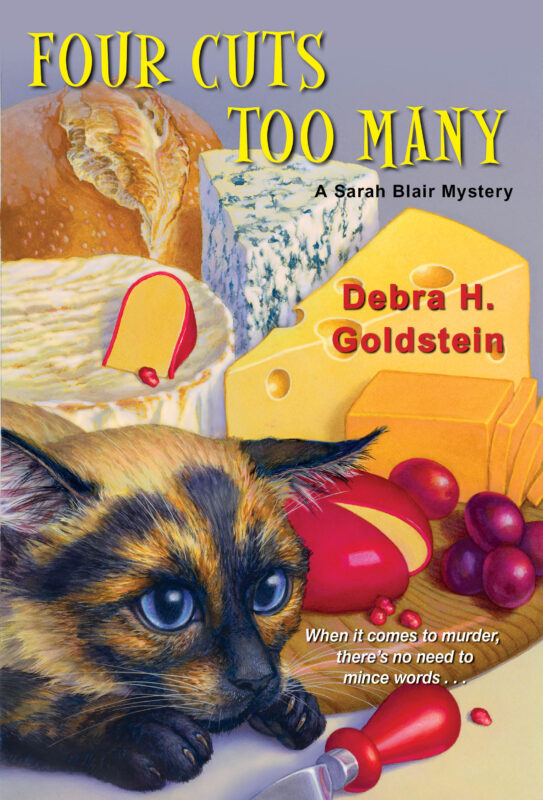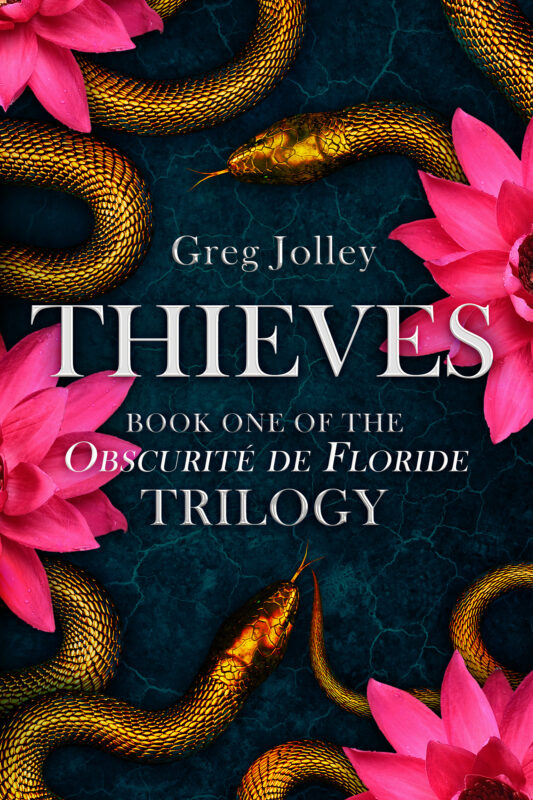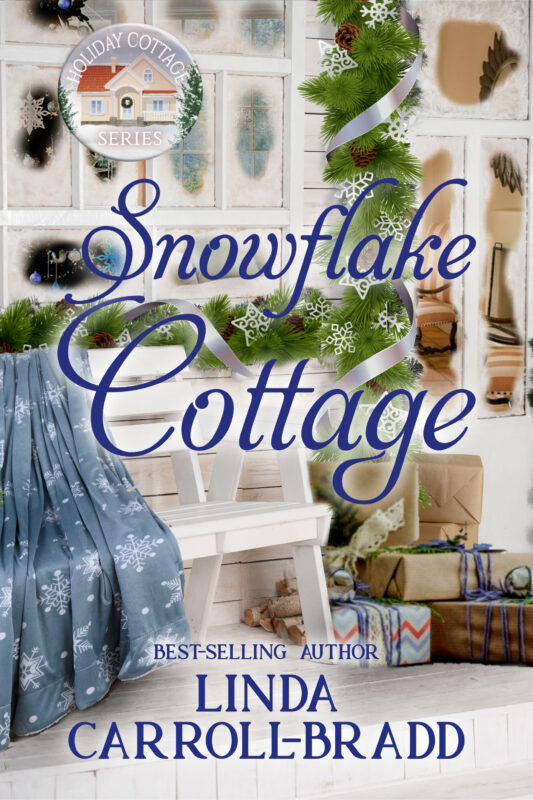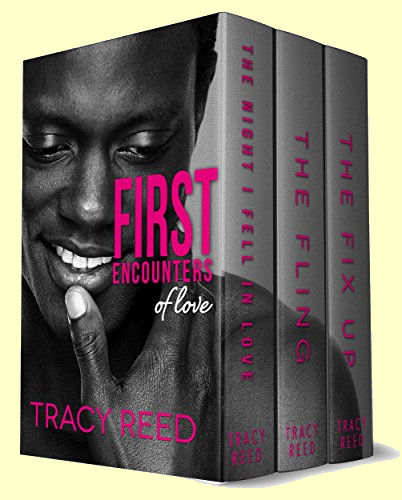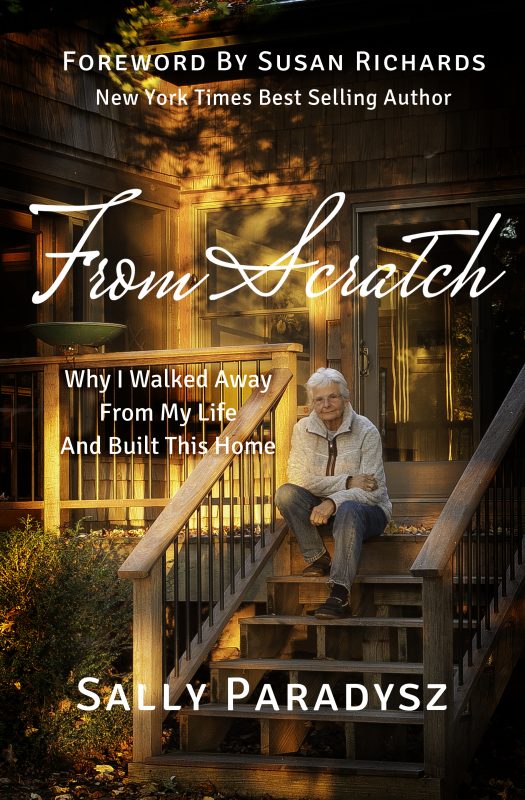Upcoming Round Table Chapter Meeting
June 6, 2016 by Linda O. Johnston in category Pets, Romance & Lots of Suspense by Linda O. Johnston, Writing tagged as Berkley Prime Crime, Linda O. Johnston, Silhouette NocturneVintage Perfumes: The Fragrances That Defined Each Decade by Connie Vines
May 13, 2016 by A Slice of Orange in category Archives tagged as Chanel#5, Coco Chanel, com, Connie Vines, fashion, novelsbyconnievines, OCC RWA, perfume, Vintage, writingNothing can transport you back in time like a fragrance. They say that your sense of smell is the most powerful and evocative sense, and it’s true: Emeraude reminds me of my mother, Quorum my husband, and Halston Z-14 reminds me of my teens and guys who bathed in a cologne—rather than indulging in a spritz or two.
“A woman who doesn’t wear perfume has no future.†– Coco Chanel
This may have been a dramatic overstatement, however, when I was in the business of selling perfume, quotes such as these, gave women confidence when she entered a room! And Chanel No. 5 is one of the most popular fragrances of all time, a bottle of it is sold every 30 seconds (this includes me ïŠ, too).
Coco Chanel also stated that women should wear perfume wherever they hoped to be kissed. Wise words indeed – please note that this does not mean ‘layered’ in perfume, as perfume counter girls armed with spray bottles will advise you. No one should be able to smell your perfume unless they’re that little bit closer than is polite, then it should be something delicious and intoxicating.
Whilst researching which perfumes were popular over the decades I was surprised how many of these I’ve actually owned. Over the years, I’ve tried Anais Anais, Shalimar, Opium, Poison, Red, and Patou 1000 before I finally settled on Chanel No. 5. Of course, I selected one of the most expensive perfumes on the market, but I guess there is a good reason why it’s been a bestseller since it was launched in 1921!
Vintage Perfumes: The Fragrances that Defined Each Decade
It’s surprising how many of these perfumes are still best sellers even now, but then why would they go out of fashion?
Popular Perfumes in the 1920s.
Chanel No. 5, launched in 1921, was an immediate success even though it was the preserve of the rich at this time. Famously worn by Marilyn Monroe, the square bottle design was rumored to been inspired by the design of a whiskey decanter.
Guerlain’s Shalimar launched first in 1925. It is one of the most popular fragrances of all time and was said to be inspired by Mumtaz Mahal, the women for whom the Taj Mahal was built. The perfume was named after the Gardens of Shalimar in Lahore, Pakistan, which were also built for her.
Popular Perfumes in the 1930s.
Tabu by Dana Fragrances which were popular in the 1930s included Tabu by Dana (a sexy evening perfume), which was launched in 1932 and Je Reviens by House of Worth, both of which remain available today.
In 1934 Elizabeth Arden developed Blue Grass.
Perhaps the most notable perfume of the 1930s was Joy by Jean Patou, voted Scent of the 20th Century at the Fragrance Foundation FiFi awards in 2000. It was created in 1929 (the year of the Wall Street Crash) and even though it was marketed as ‘the world’s most expensive perfume’, it was a huge hit. It is also considered to be one of the greatest floral fragrances of all time.
Popular Perfumes in the 1940s.
L’Air du Temps by Nina Ricci (in a pretty glass bottle with a bottle stopper fashioned as two doves). After the war lighter and fresher perfumes became more popular, one of which was the still-popular Miss Dior by Christian Dior in 1947
Popular Perfumes in the 1950s.
Femme de Rochas was a rich, sultry perfume aimed at the femme fatale created in 1944.
Arpege by Lanvin is a floral romantic perfume, created in 1927, but became particularly popular during the 1950s.
Max Factor’s Hypnotique and Primitif (as advertised by Jean Patchett above) were popular and an affordable perfume for the masses compared to the fragrances by the big fashion houses.
Soir de Paris by Bourjois was a popular fragrance amongst teenagers during the 1950s. It was discontinued in 1969, but relaunched in 1992
Popular Perfumes in the 1960s.
Oh! de London by Tuvache, YSL Rive Gauche was a popular 1960s scent
Hubert de Givenchy created L’Interdit for Audrey Hepburn and she wore the perfume for many years before it was released to the public in 1957. She featured in the adverts for L’Interdit throughout the 1960s.
Tuvache’s Oh! de London is a bright sparkling scent which perfectly captured the mood of the swinging sixties.
Guerlain introduced the heady oriental scent Chamade in 1969.
Popular Perfumes in the 1970s.
Charlie by Revlon and Diorella by Christian Dior, a perfume for the independent woman who has everything, were both very popular.
Opium by Yves Saint Laurent, launched in 1977, and was a heady, rich oriental evening perfume.
Christian Dior released the classic perfume Diorella, which combines citrus and musky notes.
Anais Anais by Cacharel, launched in 1978 and was an immediate hit (my brother gave this to me as a Christmas Gift).
Did I list one of your favorite perfumes?
Or, perhaps a fragrance you’ve never dared to try?
Perfuming is an art. Indulge your senses, enjoy the fragrance—it’s mystical, it’s magical, is the new youïŠ.
Happy Reading,
Connie Vines
Elena and Kitty Blabbing About Books – A Live Show
May 10, 2016 by A Slice of Orange in category Archives tagged as Blab, Elena and Kitty Blabbing About Books, Elena Dillon, It's Worth It, Kitty Bucholtz, video podcastsResearch: Does Inaccuracy in a Novel Bother You? By Connie Vines
April 13, 2016 by A Slice of Orange in category Archives tagged as Connie Vines, Gems in the Attic, GothRom RWA, Native American Romance, OCC Blog, OCC RWA, Research for WritersI blog weekly on two sites (in addition to my own) and monthly on four website, I thought I’d post a topic from my Round Robin Series.
Topic: All story genres take some research for establishing details in the setting. What type of research have you had to do? Does it bother you when you read something happening in a story that is inaccurate historically, socially, scientifically, etc?
Does it bother me?
Yes.
However, in my case, there are varying degrees of irritation. If it is an easily found fact, or a fact that any functioning adult should be aware of then, yes—I am very irritated and will probably not finish the novel. On the other hand if current verbiage is used or the description of an item of clothing is more modern, that could be the writer’s choice. The writer may feel that her ‘readers’ wish to have the ‘flavor’ of a historical story without the genealogy charts or gritty reality of the era. Then I am okay. But to pass the facts off as accurate/ or marketed to make the reader believe this is not a fictionalized story—as in “The Other Boleyn Sister†or Disney’s “Pocahontas†animated movie (with what I like to call the Vulcan-mind-meld when the Hero and Heroine suddenly speak and understand each other), I do become angry. Apparently, I clamp my teeth, and my husband will swear that I growl when these movies become a topic of conversation.
We all make mistakes, I remind myself. Alternatively, the copy-editor adds/ deletes a needed fact. Moreover, sometime we simply ‘thought’ we removed it from the final draft. Still sloppy research makes for sloppy writing. If you do not like research, build your own world/town/or, do not give the reader a date or place to hang her hat on. You and add a statement: liberties were taken; the mistakes are my own, etc.
Researching
Any professional writer knows there is a lot more to the job than simply writing. There is also revising, editing, promoting, and much more. Before I even consider typing: Chapter One. Whether I am writing, historical, or fantasy, I conducted days—if not months or even years, gather my research material and scheduling interviews.
Research is vital to every writer. Contemporary novels required daily research to keep up-to-date on the latest tech item, hairstyle or whatever relates to your storyline.
Every encounter with a new person or visiting a new place is an opportunity for better, more descriptive writing. Writers never truly take a vacation, or turn off the research part of her/his brain.
So how do I organized my research material? (Tossing everything into a large bin is oh-so-not-the-way to be organized.)
#1: Keep a File Folder for Ideas
I have files where I stash clippings of articles on specific topics I feel will come up again, or will one day make great short stories/articles. I have plain colored folders for “shared†topics (I write multiple genres), cute folders (for YA/Teen topics), action folders for supernatural stories, etc.
These clippings are often story generators or prompts to open a chapter/create a pivot point. How many times have you heard something on the radio or watched something on television and thought, “Wouldn’t that be so great in my next novel�
Story prompts can be anything that you find interesting, anything that relates to your genre or area of writing interest. Because my books are character driven, I tend to be drawn to articles that talk about the human condition (i.e., why we do the things we do) or specific topics that I feel relate to my particular ‘character’.
#2: Story Premise Research First
When you start a new project, you must make some decisions. What is the theme of your book? (We might also think of this step as “what is the premise of your book?â€) The answer to this question will guide your starting research.
My third book, Whisper upon the Water, focused a lot on the living conditions and societal attitudes about Native American children. I already knew that Native American children were forced to attend government run boarding schools after the Indian Wars, but I did not know about the process, and how it affected the children or how they adapted. Therefore, I began with interviews, tours of the schools still in operation and trips to historical archives and reservations.
Before I wrote a single word, I looked into this, and the answers I found are what formulated my plot points. I needed this foundation of research to create a convincing plot, otherwise I would not tell the story correctly. I wanted the truth, I wanted historical accuracy and I wanted my readers to have an emotional connection to my characters.
Poor research in the beginning often results in a manuscripts dying at the halfway point. Think of this step as the foundation of your novel.
#3: First-Hand Accounts
As a rule, I set my stories in placed I have lived or visited. However, a writer does not have to go to a city/country to get a feeling for it.
Online Resources
Travel sites, local blogs, and YouTube all have a place in a writer’s arsenal. In particular:
• Travel Sites often have detailed maps and downloadable audio walking tours that can give you context for notable buildings and directional substance for urban areas to include in your book.
• YouTube is a major resource, often underutilized by writers. Those seemingly normal videos are great for providing local terminology, dialect, visual perspective and even minor details like the amount of traffic at a particular park or on a particular street.
#4: Details
• Using Google Maps and Streetview, for my upcoming release anthology at BWL: Gumbo Ya Ya—for women who like romance Cajun & men Hot & Spicy! I was able to get a street view of that area and I could ‘walk’ the streets as they appear in New Orleans. The Streetview feature setting on Google Maps plops you down right at street level and gives you a 360-degree view of everything including traffic, crowds, and architecture. While I do have my personal photos and memories of the city, it is always good to make certain the details are ‘just right’.
#5: Remember to Write
You can always do a fact check on the smaller items as part of the final revision process.
When I am dictating or typing my story, unless an earth-shattering event is in the works, I do not stop the process. I will type:** research time line of Spanish Flu or ** insert the popular song year, and keep writing. When I go back over the material, I will have time to add the particulars.
Research is fun. Unlike may authors, research in my favorite part of writing. Like a method actor, I immerse myself in the process. Hobbies, Music, Books, and Food (well, not food when I wrote my Zombie novella, “Here Today, Zombie Tomorrowâ€. right now, however, it is shrimp Creole, pecan pie and coffee with chicory). Research need not be cumbersome. If you are interested in your subject matter, then it is not work. It is just another part of writing a book.
I believe it is writing a book that is rich in research helps to separate the writers from the multi-published authors.
Readers, how do you feel about this topic? How important is historical accuracy to you?
Happy Reading,
Connie Vines
Soldier, Nurse, Spy: The Women who won the Civil War
March 11, 2016 by A Slice of Orange in category Archives tagged as 1862, Civil War, Confessions of a Podcast Goddess, medical drama, medicine, Mercy Street, PBS, romance, time travel, VirginiaMarch is Women’s History Month.
Writing women back into history. Many times we forget the Civil War wasn’t fought only by men, but women, too.
Did you watch the recent PBS Civil War mini-series “Mercy Street?”
I was glued to my TV every week watching the fascinating story of a Virginia hotel turned into a hospital for both Union and Confederate wounded in 1862.
What did you think of Mercy Street?
I enjoyed watching the story unfold and how it paralleled my Civil War time travel romance, Love Me Forever, which also takes place in 1862 Virginia. It was like watching my pages come alive with Civil War medicine, a visit from Mr. Lincoln, hoop skirts, women’s roles in both the North and the South, and of course, hot romance.
What I loved so much about that show was the prominence of women’s roles during the Civil War and how they changed nursing with their daring and willingness to tread into what was then a male profession.Like Mercy Street, I have two heroines:
Liberty Jordan, a time traveler from the future who goes back to Antietam dressed as a Confederate officer.
Pauletta Buckingham, a Tennessee belle and a spy bent on revenging the death of her beloved, a Texas Ranger.
An odd couple in every way. One is a strawberry-blonde, the other raven-haired. One believes in the Union; the other will do anything for the cause. One is in love with a man she can’t have…the other is engaged to a man she doesn’t love.
 But these two women have one thing in common: believing in women’s equality. Here my time traveler, Liberty in LOVE ME FOREVER, questions her involvement in the war with belle Pauletta Sue.
But these two women have one thing in common: believing in women’s equality. Here my time traveler, Liberty in LOVE ME FOREVER, questions her involvement in the war with belle Pauletta Sue.
“Liberty couldn’t stop questioning how she got mixed up with this crazy secesh woman and her insane scheme. She’d never seen a woman so passionate about a cause, so truly believing what she was doing was patriotism. The war had unleashed a fire in her, and the more Liberty understood about the protected, delicate lifestyle these women led, the more she knew a great movement was underway that went beyond their cause.
It wasn’t until 1866 that the American Equal Rights Association was founded, but this was the beginning of the movement leading to women’s freedom and that she could understand. What bothered her was that Pauletta Sue was on the losing side of the war and because of that, she might not benefit from the changes women embraced afterward. She worked so hard at her cause, Liberty believed she deserved better, but the belle wouldn’t listen to her.â€
I love how these two women bond over the course of the story as did Union Army nurse Mary in Mercy Street with belle Emma. But as much as I enjoyed the series, I kept hoping they would touch on the role of women in the ranks. Brave women who fought and often died as soldiers because they believed in their cause. I’m hoping the series will be renewed and we’ll meet up with a female soldier in Season 2.
My hero, Major Flynt Stephens, a Union Army physician, ponders the idea of female soldiers when he finds out his Rebel prisoner is a beautiful woman (Liberty).
“The Rebel prisoner was a female.
Would his nurse give her away? Or was she waiting for him to say something? He couldn’t. He felt a stirring within him, something he didn’t want to admit, that brought a hardness between his loins. Did he dare imagine that a beautiful woman existed under all that blood and dirt? He’d heard stories about women enlisting in the army, both North and South, and fighting as men. A good set of teeth to rip open a bullet cartridge, a trigger finger that worked, and a firm handshake was all that was required to join up. It was no secret the promise of a steady paycheck was often the reason behind such reckless female behavior.
That didn’t solve his immediate problem.â€
Women Soldiers in the Civil War from “Love Me Forever” from Jina Bacarr on Vimeo.
We will soon see women in combat roles in the Armed Forces. Imagine how proud the women soldiers in the Civil War would be knowing they paved the way…
~Jina
LOVE ME FOREVER is available on Amazon
jinabacarr.com
jinabacarr.wordpress.com
twitter.com/jinabacarr
facebook.com/JinaBacarr.author
pinterest.com.jbacarr
Affiliate Links
A Slice of Orange is an affiliate with some of the booksellers listed on this website, including Barnes & Nobel, Books A Million, iBooks, Kobo, and Smashwords. This means A Slice of Orange may earn a small advertising fee from sales made through the links used on this website. There are reminders of these affiliate links on the pages for individual books.
Search A Slice of Orange
Find a Column
Archives
Featured Books
FOUR CUTS TOO MANY
Sarah Blair gets an education in slicing and dicing when someone in culinary school serves up a main corpse in Wheaton, Alabama . . .
More info →THIEVES: Book One of the Obscurité de Floride Trilogy
The hunt is on . . .
More info →FIRST ENCOUNTERS OF LOVE
The FIRST ENCOUNTERS OF LOVE box set includes three stories of romantic firsts.
More info →Newsletter
Contributing Authors
Search A Slice of Orange
Find a Column
Archives
Authors in the Bookstore
- A. E. Decker
- A. J. Scudiere
- A.J. Sidransky
- Abby Collette
- Alanna Lucus
- Albert Marrin
- Alice Duncan
- Alina K. Field
- Alison Green Myers
- Andi Lawrencovna
- Andrew C Raiford
- Angela Pryce
- Aviva Vaughn
- Barbara Ankrum
- Bethlehem Writers Group, LLC
- Carol L. Wright
- Celeste Barclay
- Christina Alexandra
- Christopher D. Ochs
- Claire Davon
- Claire Naden
- Courtnee Turner Hoyle
- Courtney Annicchiarico
- D. Lieber
- Daniel V. Meier Jr.
- Debra Dixon
- Debra H. Goldstein
- Debra Holland
- Dee Ann Palmer
- Denise M. Colby
- Diane Benefiel
- Diane Sismour
- Dianna Sinovic
- DT Krippene
- E.B. Dawson
- Emilie Dallaire
- Emily Brightwell
- Emily PW Murphy
- Fae Rowen
- Faith L. Justice
- Frances Amati
- Geralyn Corcillo
- Glynnis Campbell
- Greg Jolley
- H. O. Charles
- Jaclyn Roché
- Jacqueline Diamond
- Janet Lynn and Will Zeilinger
- Jaya Mehta
- Jeannine Atkins
- Jeff Baird
- Jenna Barwin
- Jenne Kern
- Jennifer D. Bokal
- Jennifer Lyon
- Jerome W. McFadden
- Jill Piscitello
- Jina Bacarr
- Jo A. Hiestand
- Jodi Bogert
- Jolina Petersheim
- Jonathan Maberry
- Joy Allyson
- Judy Duarte
- Justin Murphy
- Justine Davis
- Kat Martin
- Kidd Wadsworth
- Kitty Bucholtz
- Kristy Tate
- Larry Deibert
- Larry Hamilton
- Laura Drake
- Laurie Stevens
- Leslie Knowles
- Li-Ying Lundquist
- Linda Carroll-Bradd
- Linda Lappin
- Linda McLaughlin
- Linda O. Johnston
- Lisa Preston
- Lolo Paige
- Loran Holt
- Lynette M. Burrows
- Lyssa Kay Adams
- Madeline Ash
- Margarita Engle
- Marguerite Quantaine
- Marianne H. Donley
- Mary Castillo
- Maureen Klovers
- Megan Haskell
- Melanie Waterbury
- Melisa Rivero
- Melissa Chambers
- Melodie Winawer
- Meriam Wilhelm
- Mikel J. Wilson
- Mindy Neff
- Monica McCabe
- Nancy Brashear
- Neetu Malik
- Nikki Prince
- Once Upon Anthologies
- Paula Gail Benson
- Penny Reid
- Peter Barbour
- Priscilla Oliveras
- R. H. Kohno
- Rachel Hailey
- Ralph Hieb
- Ramcy Diek
- Ransom Stephens
- Rebecca Forster
- Renae Wrich
- Roxy Matthews
- Ryder Hunte Clancy
- Sally Paradysz
- Sheila Colón-Bagley
- Simone de Muñoz
- Sophie Barnes
- Susan Kaye Quinn
- Susan Lynn Meyer
- Susan Squires
- T. D. Fox
- Tara C. Allred
- Tara Lain
- Tari Lynn Jewett
- Terri Osburn
- Tracy Reed
- Vera Jane Cook
- Vicki Crum
- Writing Something Romantic
Affiliate Links
A Slice of Orange is an affiliate with some of the booksellers listed on this website, including Barnes & Nobel, Books A Million, iBooks, Kobo, and Smashwords. This means A Slice of Orange may earn a small advertising fee from sales made through the links used on this website. There are reminders of these affiliate links on the pages for individual books.














